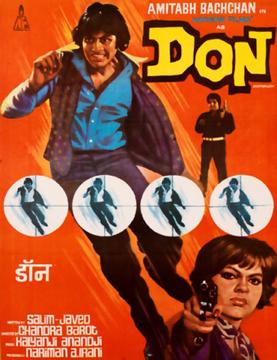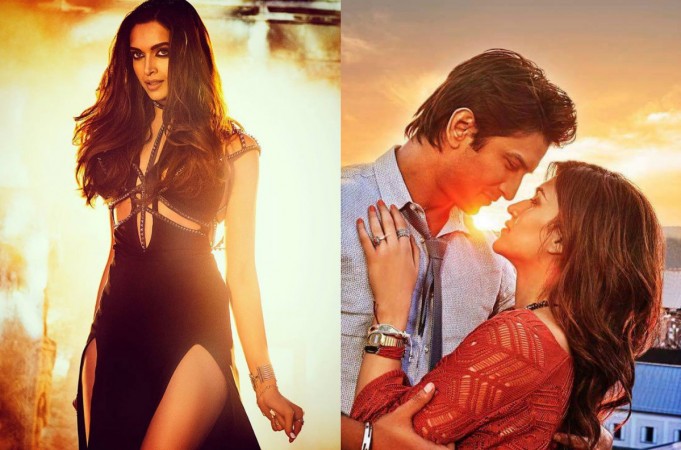Every decade in the Indian film industry has seen the rise and fall of certain musical trends. With actresses becoming singers, and old songs being recycled constantly, the way we experience old Hindi music has changed. In the 2010’s, older songs are being recycled in a way that hasn’t been done before. If we consider the sexual innuendos of the 80’s- 90’s and the glorious randomness of 90’s- early 2000’s when actors would abruptly break into song and dance, how things have evolved in this space is obvious. I always thought it was bizarre that in the 90’s, actors would be mid scene one moment and dancing in the middle of a street the very next; but I also thought it was brilliant that in so many instances, random passersby were just halted on the side of the street staring at the dancing duo, captured in the frame, and the production crew/ directors didn’t seem to notice or mind at all.
With each passing year I find that most 90’s kids, like me, have been romanticizing these musical trends and songs, and so many night-outs end with a playlist full of these 90’s hits. Maybe it’s nostalgia or maybe it’s just fun when viewed from a less serious lens, but in either scenario the 2010’s seem to be an era of revival.
As we approach the close of this decade, it is interesting to take a look at remix culture, why creative recycling is a constant and what this means for the future of music in Indian cinema. Songs that were celebrated, ridiculed, and shoved away are now being brought back to life, and this marks an interesting time for music in cinema.
Essentially a remixed song is one that has been re-produced with alterations, but songs are now being re-used in all sorts of ways. A remix is just a song that’s been re-worked, but lately, songs are being recycled to make titles of movies and T.V shows as well.
The ‘re-makes’ are not just limited to songs, but entire movies get remixed and remade, that sometimes work and sometimes don’t. Movies that do work like Don, and Agneepath make good revenue but then there are remakes like Zanjeer and Himmatwala that honestly could have been left untouched.
As for the music, Sunidhi Chauhan’s version of Yeh Mera Dil and Udit Narayan’s Khaeeke Paan from Don both became popular and introduced classic songs to a new generation, even though original versions have a quality that is difficult to replicate.
Even though the magic of an original song cannot be replicated, the title can be. In a confusing sub trend, song titles are being used as titles for T.V shows, and I’m not sure if this is done to cash in on the popularity of the songs themselves or because the creators of these shows figured they would have to purchase the rights to the songs anyway, and wanted to the get maximum use of out of their purchase. Between Bade Ache Lagete Hai and Sasural Genda Phool, it’s unclear why the writers didn’t just try to come up with a name for the shows.
Even movies have being borrowing titles from songs. Raabta (not a movie I would recommend) released earlier this year, and it was surprising that a movie that already existed as a song was being made in the first place.
It’s also amusing to note that the film Agent Vinod made in 2012, is a remake of a film of the same name that was made in 1997. So essentially Agent Vinod (‘97) got remade as Agent Vinod (2012) featuring the song Raabta, which got made into a movie titled Raabta (2017) that in turn featured a song named Raabta. It makes me wonder, will this song be thrown into the blender once again before the new decade begins? Also in the new 20’s what will people be creating? Will we start a re-remix culture? Only time can tell.

I’ve always wondered about the economics of remixed music. In an interview Little Richard once said that Elvis Presley made more money selling Tutti Frutti than he did, even though he wrote the song. But Elvis had more resources to market and distribute his music and of course Elvis was Caucasian. Maybe the same happened with Kala Chashma, or maybe a settlement has been issued since.
Aside from monetary issues, there is also the question of authenticity and tainting a perfectly good piece of work. For songs like Raabta that were already well made and went through a lousy remake, the need for remixing was really not there. Sure not all remixed music sounds tired, like A R Rahman’s Humma breathed new life into an old classic and made it enjoyable for a younger generation that wouldn’t have otherwise been introduced to the song. (Except, maybe, in a game of antaksheri with older family members).
The newest remix in town is David Dhawan’s Judwaa 2 and Tan Tana Tan released last week after much hype. Honestly I can’t say that I’d rush to purchase the song but I can see how it may become popular. Maybe the next decade will see the end of remixed music and maybe then we will finally have a playlist full of new, original music that can be remixed by a whole new generation in the 2040’s.





























